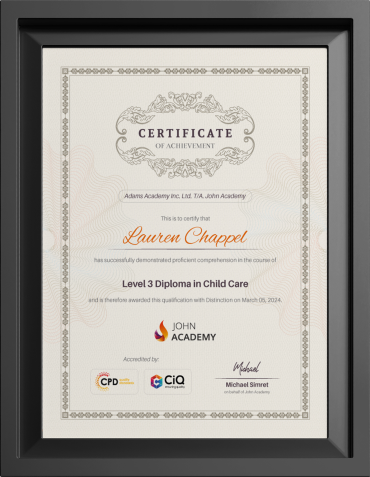
From Educator to eLearning Designer: A Beginner’s Guide to Instructional Design Software
Remember when teaching meant classrooms and chalkboards? Today it’s often screens and software. But the goal remains the same: keep

Sign language is natural, like other languages that have evolved over the years. But there is no common sign language, and not everyone knows sign language. Sign language interpreters help bridge the communication barriers. So, how to become a sign language interpreter in the UK?
Learning how to become a sign language interpreter doesn’t end with knowing sign language only. There’s more to it. You need to be qualified to land a job as a sign language interpreter.
Let’s learn everything you need to know to become a sign language interpreter.
Sign language interpreters ease communication between hard-of-hearing and deaf people. These interpreters must be fluent in both English and sign language.
Interpreters simplify communication between two parties who speak different languages. Interpreters also help deaf and hard-of-hearing people communicate with the general public. In addition, licensed sign language interpreters can work in education, medicine, business, and more services.
BSL is the Official language in Scotland, and it’s recognised minority language in England and Wales. So, do you want to become a British Sign Language Interpreter? Keep reading to learn how BSL interpreters work and how to become one of them.
The role of a sign language interpreter can vary depending on the type of employment and their specific requirements. But here are a few probable day-to-day tasks that you may have as a sign language interpreter.
Using BSL/English interpreters, people can communicate across languages more easily. BSL interpretation involves interpreting meaning rather than translating letters to words. To do so, you must have a good knowledge of the people’s language, culture and particular skills.
Here are certain skills and knowledge needed for a sign language interpreter.
As well as great interpersonal skills, interpreters must have excellent communication skills. A good interpreter must communicate well with people of all ages and adapt their behaviour appropriately. An interpreter must respect others’ privacy and maintain dignity while working in sensitive situations or environments. These moments can be anything, so an interpreter should always be ready.
The simple answer is where you need them! Like one or more deaf people may come into contact with hearing people who cannot use sign language. An interpreter can work in any educational, medical, business, juridical or office environment.
There are some interpreting situations where trainee interpreters are not allowed to work. However, most are in either a legal or a medical environment.
Most BSL/English interpreters are freelancers. It gives them the advantage of managing their own time and working independently. But it also adds the hassle of preparing and managing all the paperwork and tax returns. But, if done well in the spirit of service to the deaf community, becoming an interpreter can be very rewarding.
There are many ways to become an interpreter. Follow one or more of these methods to become an interpreter.
Let’s learn more about these paths in detail to help you choose which path to take.
You can study translation and interpretation, language and interpretation studies, or in a related field. And earn a Bachelor’s degree. But if you already have a bachelor’s degree, you can go on to graduate school to study relevant subjects.
Before applying to any university, you must meet the admission requirements. This often involves completing two or three A levels. In addition, you can consider a dual degree related to the field in which you would like to work as an interpreter. For example, if you want to work as a corporate interpreter, you may also wish to pursue a degree in business.
You can find internships, volunteers, and entry-level interpreting jobs. You can also gain experience by working for a council or other organisation that does community interpreting.
Sometimes government collaborates with other communities i.e., people with language differences. And community interpreters assist any government service or information to spread among the public.
Moreover, you can work with deaf and hard-of-hearing people as a volunteer or intern to learn sign language. You can gain experience as a community interpreter with or without a degree. Lastly, connecting with the deaf community at the introductory level helps learners apply what they have learned.
If you think you are skilled enough, you can submit your application to organisations looking for interpreters. Even if you have a non-linguistics degree, you can apply for interpreting jobs if you are fluent in English and a foreign language.
Look for open positions for entry-level or associate interpreters. Evaluate the experience and level of education required for each job and apply with an updated resume and cover letter.
Get a certificate or diploma in interpreting in research or related fields. They can help you find employment as an interpreter.
If you need to take a BSL course, you should enrol in a ‘Level 1’ or introductory course such as British Sign Language (BSL) Level 1.
The Level 1 course lasts for one academic year doing 2 hours a week, although intensive versions crop up. Intensive courses cram everything into several weeks by studying for up to 8 hours a day, with exams immediately afterwards. Useful in acquiring language, medium and longer-term benefits will depend on follow-up use of the BSL that has been learned.
It usually takes 1-2 years for learners to complete a Level 2 course once they have completed Level 1. Level 1 courses are sometimes run by local universities but can also be taken online. And online courses offer more flexibility. So, if you want to start at level 1, this can be a good place – British Sign Language (BSL) Level 1 & 2.
Once you have your Level 2 certificate, you must complete the Level 3 course. Level 3 includes deaf studies, linguistics and other portfolio work. Here the learner will engage with the Deaf via work or events. There they will meet a variety of sign language styles.
Using BSL in a real-life scenario differs from doing it in the classroom. That’s why meeting other deaf people is essential. It helps to improve receptive skills.
And talking about Level 4 is the more advanced level. It is suitable for people who want to work in this field professionally. In Level 4, you will learn more advanced vocabulary exploring its linguistic features.
Some students think they can go straight from level 3 to level 6. But that’s not a standard practice. Level 4 is vital to prevent many lousy language practices today.
You’ve been studying BSL for about 4-5 years and are nearing the final stages, but you still have a few more years to complete. At this point, your options spread out more. There are courses to study NVQ Level 4, but at this point, some learners choose to go to university to further their studies.
This route is generally divided into two parts. First, you must have a BSL Level 6 credential. This indicates that you have the language skills to work professionally. You can also register with the NRCPD and work as a trainee interpreter. The second part is the level 6 qualification in interpreting. To become a “Registered Interpreter”, you must complete this.
At this point, we hope you will register with the NRCPD. And you will receive your “yellow badge” (proof of your registration status).
You are now all set to work as a professional interpreter!
You can now work in any of your familiar environments. But make sure you hold a license and have sophisticated interpreting skills. In addition, ensure that you complete CPD (Continuous Professional Development) every year. Because languages are not static, it’s constantly evolving. As a result, it requires new terms and expressions regularly.
They are designed to keep CPD up to date with the latest interpreter theory and best practices. But remember, BSL belongs to the deaf community. So, it is the deaf community that introduces new sign languages, not the interpreters.
The length of time it takes to become an interpreter depends on how you become an interpreter. It usually takes about three years to earn a college degree. This is one of the longer ways to become an interpreter. Yet, a bachelor’s degree may improve career opportunities as an interpreter.
The national average annual salary for interpreters is £34,148. An interpreter’s salary depends on many factors. It includes their educational background, geographic location, and the type of work that they perform. Interpreters can earn over £52,000 a year from top interpreting employers.
Now you know how to become a sign language interpreter in the UK. It’s up to you which path you’d like to take. But it’s always a good idea to evaluate all your options before deciding on the path. If you think becoming a BSL interpreter is your true calling or it’s something you would be good at, it’s worth a shot.
British Sign Language (BSL) Level 1 & 2 would be a good place to start your journey.

Remember when teaching meant classrooms and chalkboards? Today it’s often screens and software. But the goal remains the same: keep

In a competitive business landscape, it’s absolutely vital that companies keep a close eye on what their competitors are up

Your CV is one of the most important documents when applying for jobs. A well-written, professional CV can help you

At its core, marketing is about identifying an audience’s problem, want, or need and showing them why a specific product

It’s both an exciting and daunting prospect: starting an online marketplace. From Airbnb to Amazon, online marketplaces have wholly changed

Destiny 2 is not just an entertaining pastime, but a platform for developing real-world skills. We’ll explore how tactical decisions
No more than 50 active courses at any one time. Membership renews after 12 months. Cancel anytime from your account. Certain courses are not included. Can't be used in conjunction with any other offer.
